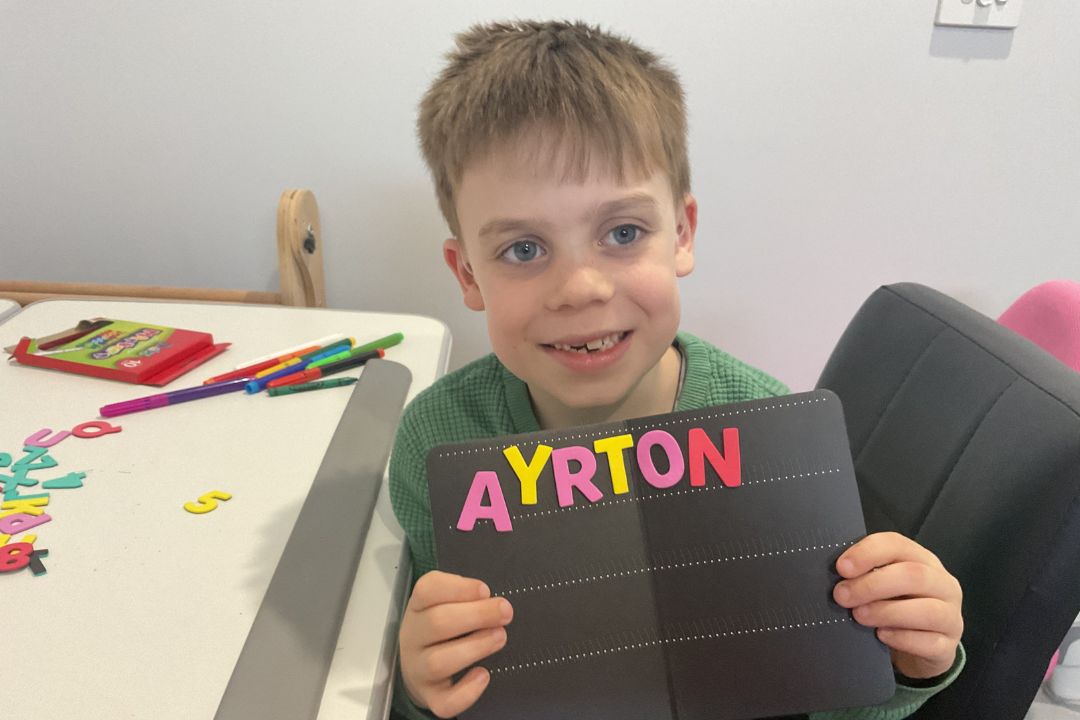
Blog
OT Insights
Hi there! We’re so glad you’ve found your way to The Therapy Network’s blog. This is your go-to space for honest, practical, and heart-led insights into the world of paediatric occupational therapy. Whether you’re navigating meltdowns, messy mealtimes, tricky handwriting, or anything in between – you’re not alone, and you’re in the right place.
At The Therapy Network, our paediatric OTs are here to share tips, ideas, and stories that support your child’s development in ways that are fun, achievable, and rooted in connection. Let’s explore how we can help little ones grow, play, and shine – one small step at a time.
Why Handwriting Is Still Important — And How OT Can Help
In an age of screens and keyboards, handwriting might seem less essential — but for children, it remains a critical skill tied to learning, development, and confidence. Here we explore why handwriting still matters and how it supports brain development, fine motor skills, self-expression, and academic success.We highlight the challenges some children face with writing and how paediatric occupational therapists help by addressing underlying skills like posture, hand strength, visual-motor integration, and sensory regulation. With practical tips for parents and a message of encouragement, the post reassures families that with the right support, handwriting can become a strength, not a struggle.
Anticipating Mother’s Day as a Soon-to-Be Mum
Mother’s Day takes on a whole new meaning when you're expecting. As a soon-to-be mum, I find myself navigating a mix of emotions—excitement, reflection, and even a bit of uncertainty—as I prepare to step into this new identity. In this blog, we explore the journey of anticipating Mother’s Day during pregnancy. This blog is written to to honour all the mother and mother figures we share.
Collaborating with Schools for a Successful New Year
When OTs team up with schools, it’s all about creating an environment where every child can thrive, no matter their challenges. In this post, we dive into the powerful role occupational therapists play in the school setting – from helping students with sensory needs to supporting fine motor skills and classroom participation. We’ll explore how collaboration between OTs, teachers, and families can lead to tailored strategies that make a real difference in a child’s school experience. If you’ve ever wondered how OT can enhance learning, this blog is for you!
Tasmania Trip Highlights
Travelling can be exciting, but for families and individuals with additional needs, it can also bring a few unexpected hurdles. In this post, we unpack some of the common accessibility concerns that pop up on the go – from navigating unfamiliar environments and managing sensory overload, to finding inclusive spaces and supports along the way. Whether you're planning a big trip or just heading out for a day adventure, we’ve got some tips, insights, and reflections to help make travel feel more manageable, enjoyable, and inclusive for everyone.
A day in the life of a paediatric occupational therapist
Ever wondered what a typical day looks like for a paediatric occupational therapist? (Spoiler: no two days are ever quite the same!) In this blog, we’re giving you a behind-the-scenes look into the playful, purposeful, and sometimes unpredictable world of paediatric OT. From creative therapy sessions and school visits to writing notes and collaborating with families, come along for the ride as we balance bubbles, busy schedules, and big breakthroughs – all in a day’s work!
Supporting Your Child Through End-of-Year Challenges
As the school year draws to a close, many children face a whirlwind of emotions and transitions—from academic pressures and final assessments to changes in routines and social dynamics. For children with diverse learning, sensory, or emotional needs, these challenges can feel even more overwhelming. In this blog, we explore how occupational therapy principles can help parents and caregivers support their child through the end-of-year period. We'll offer practical strategies to manage stress, maintain routines, and foster emotional regulation, all while nurturing confidence and a sense of accomplishment. Whether your child thrives on structure or needs extra support with change, this guide is here to help make the transition smoother for the whole family.






